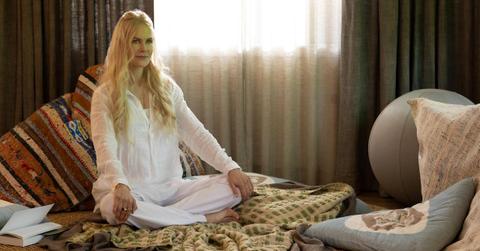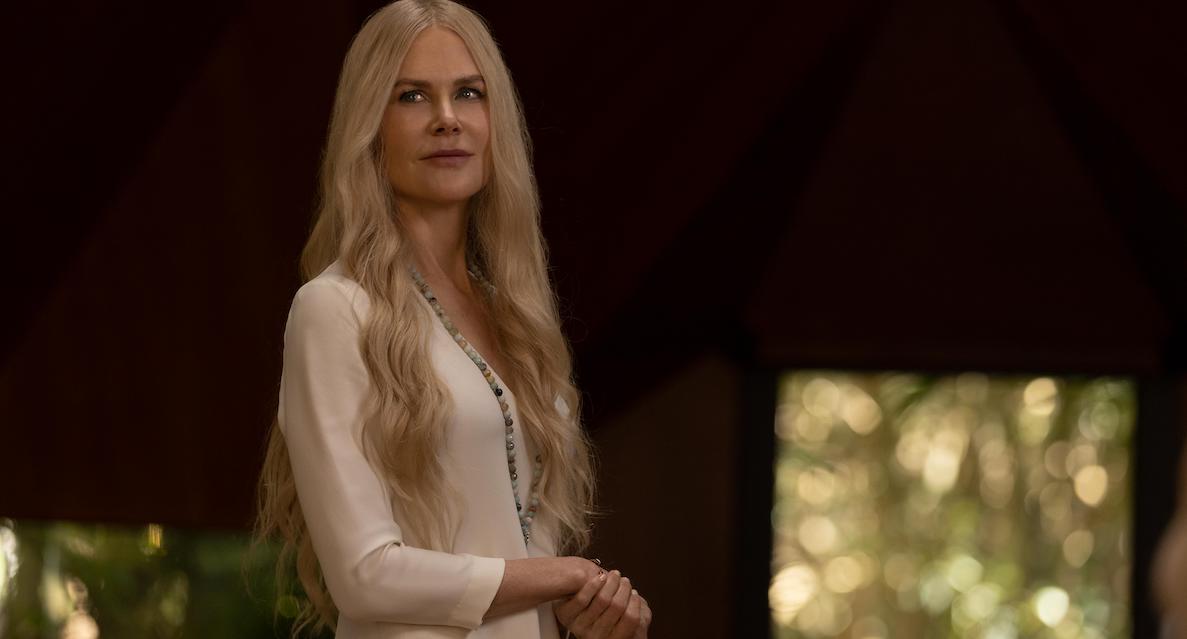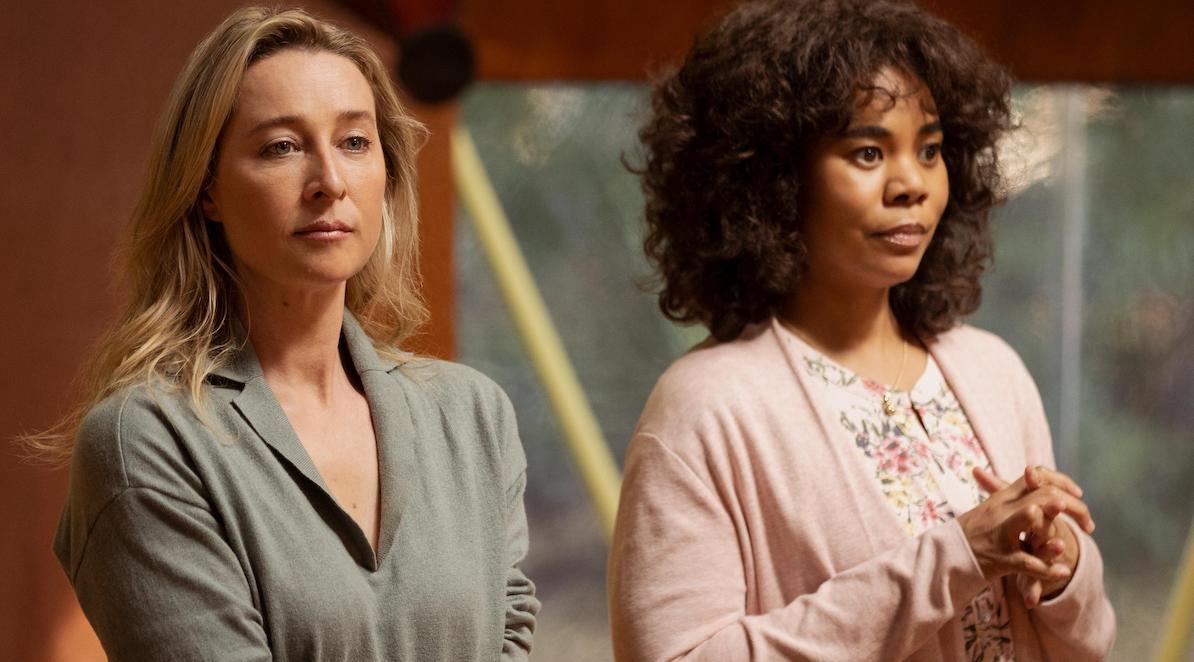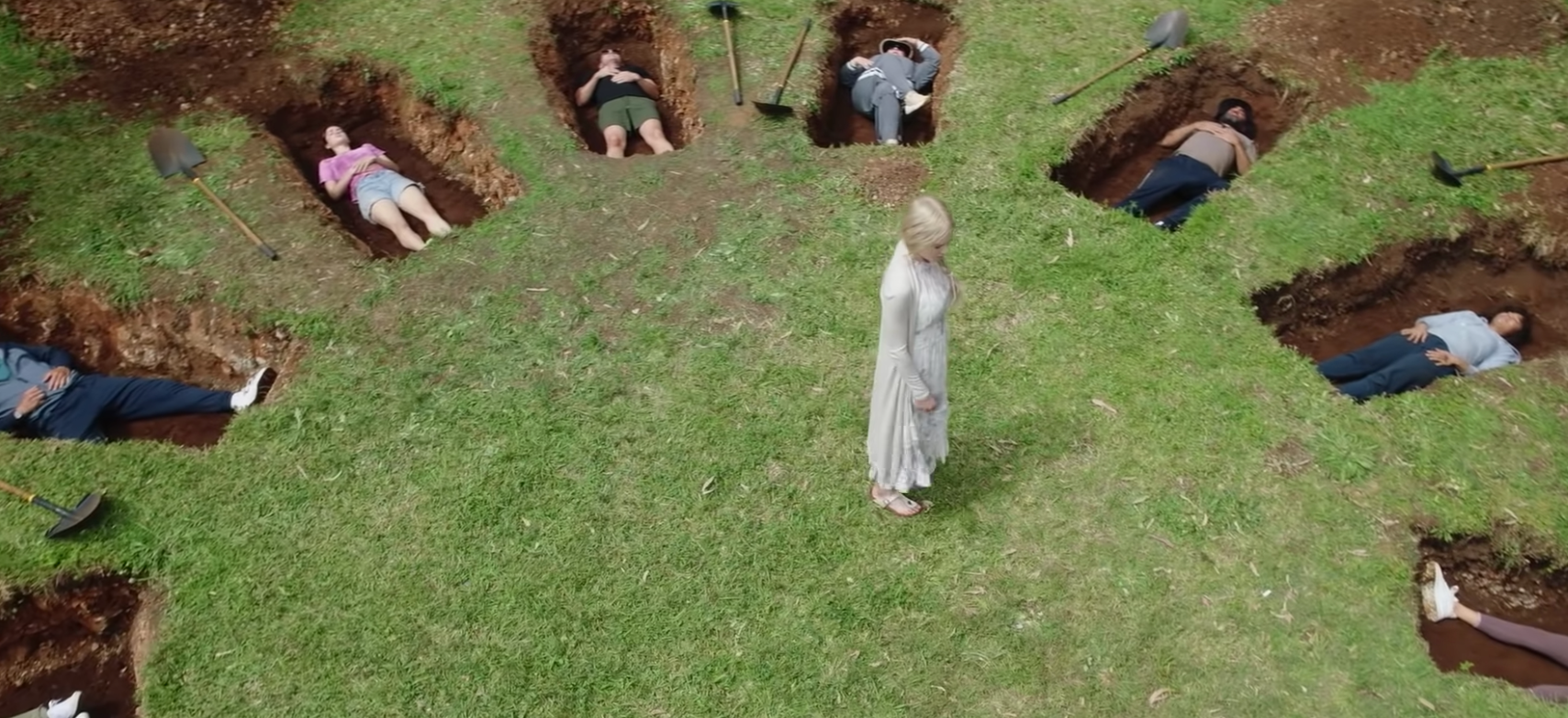‘Nine Perfect Strangers’ Is a Stale Suspense Story Lacking in Humanity
Published Aug. 9 2021, 12:00 p.m. ET

Hulu series Nine Perfect Strangers — based on the novel of the same name by Liane Moriarty (Big Little Lies) — is a muddled mystery held together loosely by actors whose talents far exceed the script.
The series features a motley crew of struggling souls who have come to Tranquillum House to confront the demons that have been haunting them. Masha (Nicole Kidman) has hand-selected the group for “compatibility” purposes, and she relies on two colleagues —Yao (Manny Jacinto) and Delilah (Tiffany Boone) — to ensure the retreat’s smooth operations.

Jessica (Samara Weaving), Ben (Melvin Gregg), Frances (Melissa McCarthy), Lars (Luke Evans), Tony (Bobby Cannavale), Napoleon (Michael Shannon), Yao (Manny Jacinto), and Heather (Asher Keddie)
‘Nine Perfect Strangers’ fails to build characters out of its concept.
The series boasts an all-star ensemble, including Melissa McCarthy, Bobby Cannavale, Michael Shannon, Regina Hall, Luke Evans, and Samara Weaving, but it fails to build characters out of its banal concept. Though aiming to ask if we are more than our demons, each character merely becomes their demon — whether it be a fall from grace, a failed shot at stardom, a loss of love, or betrayal.
The series hyper-fixates on its characters' messes and plays puppeteer with their emotional growth. The characters are not relatable because their identities operate in utter service to the narrative.

They change because they must; their experiences never quite cement the foundation necessary for character development, but the next scene's plausibility depends on an epiphany. And when identities are wound so tightly around story-building, the characters grow predictable, resulting in the loss of the one attribute essential to any intriguing mystery: suspense.
Nicole Kidman and her roster of A-listers cannot save ‘Nine Perfect Strangers,’ despite their best efforts.
Unfortunately, no amount of smirk-worthy quips from Melissa McCarthy or tear-jerking confessions from Bobby Cannavale can save this series from its reliance on two-dimensional clichés. There’s the author who’s afraid she’s a hack, the woman whose husband betrayed her, and the family who lost a relative.

Kidman may hide a world of emotions behind her eyes — fear, intrigue, doubt, curiosity — but it doesn’t penetrate when Masha exists merely as some omniscient figurehead. The writers seize brief moments to humanize her, aiming to remove her godlike impenetrability via flashbacks to a traumatic past.
Yet, her past self functions as a wholly separate entity (evidently to fulfill a writers’ room checklist). The old Masha looks, sounds, and acts differently. The new Masha does not feel like a consequence of her former self, but rather a caricatured recreation — a trite yoga-practicing guru sans her predecessor's humanity.
How can viewers feel for Masha when she doesn’t seem to feel at all? How can we relate to Cannavale’s tormented existence when his life has been reduced to scarring fragments? How can we connect to a pair of lovers when all they are is their love story?
The series relies on the actors’ sheer performances alone. And, though the actors do indeed deliver, the memorable monologues and dynamic dialogues exist as derivatives of emotion; performance prowess permeates where people should prevail.
And, as the characters interact — grouping off into pairs that supposedly “complement each other's demons,” the story wanders along, seemingly forgetting its mysterious crux and picking it up along the way only when convenient.

Heather (Asher Keddie) and Carmel (Regina Hall)
Slow-boil does not begin to describe Nine Perfect Strangers. For most of the series, the mystery at the center barely simmers, as viewers are left pondering what the intention for the series is.
Twists and turns surface occasionally and pieces fall into place haphazardly. The show spends too much time grasping at multiple plots. There’s a malicious presence at the resort. There’s a love triangle. There’s Masha’s grim past. There’s a budding romance between two retreat-goers. And, the list goes on. In taking on too many tales, the show fails to weave that singular, spell-binding thread indispensable to an episodic thriller.
Nine Perfect Strangers functions as a series of disconnected installments for the majority of its run. The show meanders along, infrequently making its way back to the primary puzzle. (That is if it's even clear what precisely that is). And the “big twist,” when it finally comes, is unlikely to rise to the occasion or warrant an eight-episode run.
Nine Perfect Strangers offers a title and a premise that fosters intrigue. Yet, the execution turns an alluring idea into a stale suspense saga, an unremarkable entry in its genre and deeply disappointing when compared to Moriarty and David E. Kelley's prior triumphant collaboration, Big Little Lies.
☆☆
